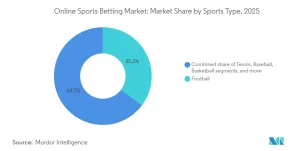
Ever wondered what goes through the mind of a high-stakes Baccarat player when they push a six-figure bet across the table? It’s not just about luck—or even skill, really. The game becomes a psychological battleground where intuition, pressure, and even superstition collide. Let’s break it down.
The High-Stakes Mindset: More Than Just Money
High rollers don’t just play Baccarat—they live it. The adrenaline, the social status, the sheer thrill of risk… it’s a cocktail of motivations. Here’s what fuels them:
- The Illusion of Control: Even in a game heavily reliant on chance, players convince themselves their choices matter—whether it’s squeezing the cards just so or trusting a “lucky” dealer.
- Social Proof: At VIP tables, the pressure to match others’ bets can override logic. If the whale next to you drops $200K on Player, well, suddenly Banker feels… lonely.
- Endorphin Addiction: Winning triggers dopamine hits so intense that players chase losses just to feel that rush again. The brain doesn’t care if the math says stop.
Decision-Making Under the Gun
Baccarat moves fast. In high-stakes games, hesitation can feel like weakness. Players often rely on:
1. Pattern Recognition (Even When It’s Bogus)
Humans are wired to see patterns—even in randomness. A streak of four Banker wins? “Trend!” says the brain. Casinos exploit this with electronic displays showing past results, knowing players will bet against imaginary “due” outcomes.
2. Emotional Anchoring
Ever notice how a player’s first big win sets their risk tolerance? If they started with a $50K win, suddenly $10K bets feel “safe.” Conversely, early losses make them reckless—”I’ve already lost X, what’s another Y?”
3. Superstitious Rituals
From blowing on cards to avoiding the number 4 (unlucky in Chinese culture), rituals give players a false sense of influence. High rollers are especially prone—when stakes are sky-high, even irrational habits feel like armor.
The Casino’s Psychological Playbook
Casinos aren’t passive observers. They engineer environments to nudge high-stakes players toward riskier decisions:
| Tactic | Effect |
| Complimentary alcohol | Lowers inhibition, increases bet sizing |
| Private salons | Isolates players from reality checks |
| Dealer rapport | Creates emotional attachment to “their” table |
And here’s the kicker: high-limit Baccarat often has lower house edges than mass-market tables. It’s not generosity—it’s calculated. Players stay longer when they lose slower, and the big bets add up.
When Logic Loses to Gut Feeling
You’d think high rollers would be cold calculators. But under pressure, even pros default to cognitive biases:
- Sunk Cost Fallacy: “I’ve put in $500K—walking away now would waste it.” (Spoiler: It’s already gone.)
- Confirmation Bias: Remembering wins vividly, downplaying losses as “flukes.”
- Hindsight Bias: “I knew Banker would win!” (No, you didn’t.)
Funny thing? Many admit these flaws mid-game… and keep playing anyway. The brain’s reward system overrides logic like a blackjack dealer hitting on 17.
The Takeaway: It’s Not Just a Game
High-stakes Baccarat isn’t about cards—it’s about human nature under extreme conditions. The next time you see someone casually betting a house on one hand, remember: their biggest opponent isn’t the dealer. It’s their own mind.








